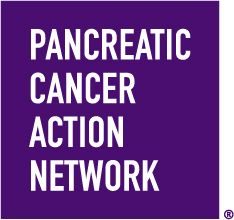
Insights into the Latest Trends in Pancreatic Cancer

Key Takeaways
- NCCN guidelines on genetic testing for hereditary cancers assist patients in understanding genetic risks and testing options, promoting informed healthcare decisions.
- PanCAN's Early Detection Initiative explores the connection between new-onset diabetes and pancreatic cancer to develop early screening methods for high-risk individuals.
This month’s Research Spotlight highlights significant advancements in pancreatic cancer research and patient support.
This month’s Research Spotlight highlights significant advancements in pancreatic cancer research and patient support. The National Comprehensive Cancer Network (NCCN) has released new patient-facing guidelines on genetic testing for hereditary cancers, including pancreatic cancer. These guidelines provide essential information on genetic risks, testing options, and early detection strategies, helping patients and their families make informed healthcare decisions. PanCAN strongly encourages genetic and tumor biomarker testing for all pancreatic cancer patients to guide personalized treatment and identify potential risks for family members.
PanCAN’s Early Detection Initiative (EDI) has successfully enrolled over 8,800 participants to study the link between new-onset diabetes and pancreatic cancer. The goal of this initiative is to develop a screening method for high-risk individuals that detects pancreatic cancer early when it is still surgically treatable. As data from the study continues to be analyzed over the coming years, researchers are hopeful that this initiative will lead to the implementation of a new screening strategy that improves early detection and patient outcomes.
Additionally, pancreatic cancer disproportionately affects Black Americans, who have higher incidence and mortality rates than other racial and ethnic groups. The American Cancer Society’s latest report attributes these disparities to structural racism and inequitable access to healthcare. Addressing these disparities requires continued advocacy and research funding. PanCAN leaders recently visited Capitol Hill to urge federal investment in pancreatic cancer research, emphasizing the importance of sustained funding for scientific progress and improved patient outcomes. PanCAN encourages supporters to engage in advocacy efforts to ensure that funding for life-saving research remains a national priority.
Read more from PanCAN’s Chief Scientific & Medical Officer Dr. Anna Berkenblit:




